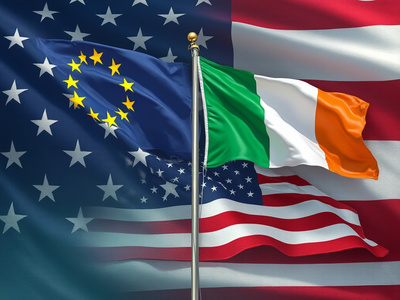
Campaigners Oppose Changes to Online Safety Laws Amid UK-US Trade Discussions
Child safety advocates express concerns over potential compromises to the Online Safety Act in ongoing trade negotiations.
Child safety advocates have raised alarms about the potential weakening of the Online Safety Act as the UK government enters negotiations for a trade deal with the United States.
These concerns have intensified following reports indicating that the draft transatlantic agreement includes proposals to reassess the enforcement of the Online Safety Act, amidst apprehensions from the White House regarding its implications for free speech rights.
The Molly Rose Foundation, established in memory of Molly Russell, a British teenager who died by suicide after being exposed to harmful online content, has publicly expressed its dismay over the possibility of the Act being utilized as a bargaining tool in trade negotiations.
The foundation has reached out to the business secretary, Jonathan Reynolds, urging him to resist any compromises that could jeopardize children's safety online.
Reports suggest that the proposed negotiations may include a review of the Online Safety Act and the Digital Markets, Competition and Consumers Act, though sources indicate this would focus on implementation rather than a complete overhaul of the legislation.
Concerns were further amplified when the US State Department reportedly challenged the UK's communications regulator, Ofcom, regarding the Online Safety Act's potential constraints on freedom of expression.
The Online Safety Act aims to prioritize child safety by mandating that technology platforms protect users under the age of 18 from exposure to harmful content, including material related to suicide and self-harm.
Non-compliance with the Act can result in significant financial penalties, with fines reaching up to £18 million or 10% of global revenues.
For major corporations such as Meta and Google, this could translate into billions of pounds in fines.
Additionally, in severe cases, services may face removal from the UK market.
Beeban Kidron, a cross-bench peer and advocate for internet safety, has criticized the Labour Party, suggesting that its voters would be opposed to trading child safety for concessions in the negotiations.
The NSPCC, a prominent child safety charity in the UK, echoed these sentiments, insisting that the government must uphold its commitment to enhancing the online safety landscape for children.
During a session in the House of Commons, Reynolds acknowledged the existence of significant differences on topics like VAT within the negotiations but refrained from disclosing specific details regarding the ongoing discussions.
A spokesperson for Reynolds confirmed that the report on the reassessment of the Online Safety Act would not be denied.
Technology Secretary Peter Kyle reiterated the government's position in a recent interview, asserting that online safety measures are not subject to negotiation and reaffirming the government's commitment to shielding children and vulnerable individuals from harmful online content.
The Prime Minister's spokesperson confirmed that the stance on the Online Safety Act remains unchanged, emphasizing its role in ensuring that what is illegal offline is also illegal online and maintaining that basic protections are non-negotiable.
These concerns have intensified following reports indicating that the draft transatlantic agreement includes proposals to reassess the enforcement of the Online Safety Act, amidst apprehensions from the White House regarding its implications for free speech rights.
The Molly Rose Foundation, established in memory of Molly Russell, a British teenager who died by suicide after being exposed to harmful online content, has publicly expressed its dismay over the possibility of the Act being utilized as a bargaining tool in trade negotiations.
The foundation has reached out to the business secretary, Jonathan Reynolds, urging him to resist any compromises that could jeopardize children's safety online.
Reports suggest that the proposed negotiations may include a review of the Online Safety Act and the Digital Markets, Competition and Consumers Act, though sources indicate this would focus on implementation rather than a complete overhaul of the legislation.
Concerns were further amplified when the US State Department reportedly challenged the UK's communications regulator, Ofcom, regarding the Online Safety Act's potential constraints on freedom of expression.
The Online Safety Act aims to prioritize child safety by mandating that technology platforms protect users under the age of 18 from exposure to harmful content, including material related to suicide and self-harm.
Non-compliance with the Act can result in significant financial penalties, with fines reaching up to £18 million or 10% of global revenues.
For major corporations such as Meta and Google, this could translate into billions of pounds in fines.
Additionally, in severe cases, services may face removal from the UK market.
Beeban Kidron, a cross-bench peer and advocate for internet safety, has criticized the Labour Party, suggesting that its voters would be opposed to trading child safety for concessions in the negotiations.
The NSPCC, a prominent child safety charity in the UK, echoed these sentiments, insisting that the government must uphold its commitment to enhancing the online safety landscape for children.
During a session in the House of Commons, Reynolds acknowledged the existence of significant differences on topics like VAT within the negotiations but refrained from disclosing specific details regarding the ongoing discussions.
A spokesperson for Reynolds confirmed that the report on the reassessment of the Online Safety Act would not be denied.
Technology Secretary Peter Kyle reiterated the government's position in a recent interview, asserting that online safety measures are not subject to negotiation and reaffirming the government's commitment to shielding children and vulnerable individuals from harmful online content.
The Prime Minister's spokesperson confirmed that the stance on the Online Safety Act remains unchanged, emphasizing its role in ensuring that what is illegal offline is also illegal online and maintaining that basic protections are non-negotiable.










